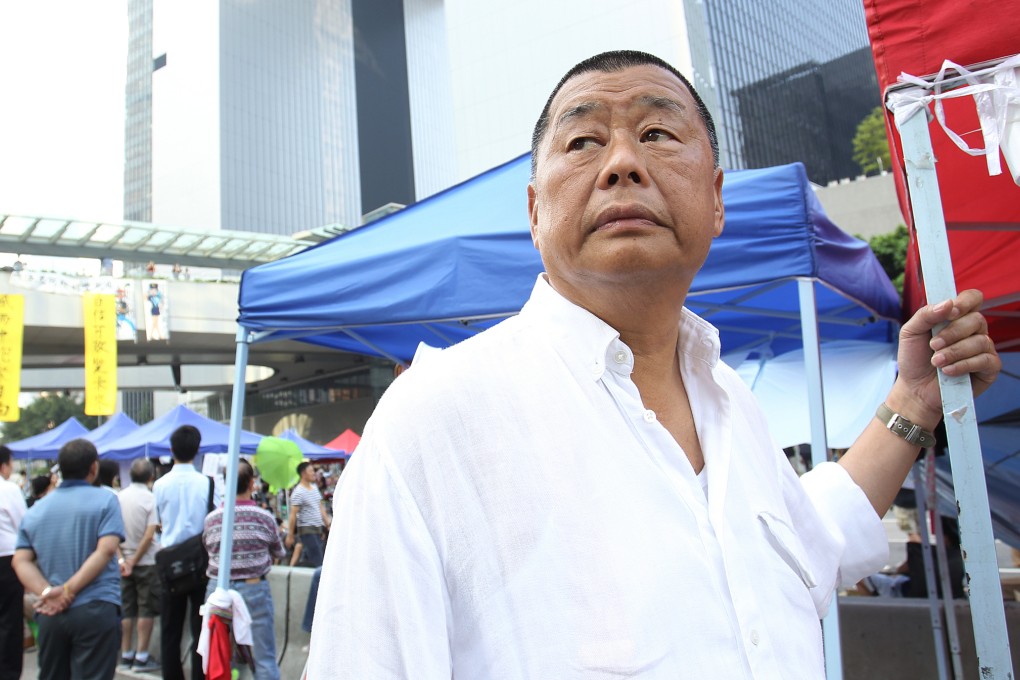New | Deleted article on Jimmy Lai sheds light on Chinese censors' media spin

An online publication appears to have resumed publishing articles in China after a week of silence that appeared to have been punishment for questioning the party line on media tycoon Jimmy Lai Chee-ying, one of Beijing’s most outspoken critics.
Lai had been portrayed in state media as one of the orchestrators of the demonstrations that brought tens of thousands of residents to the streets of Hong Kong over the last two weeks to demand real democracy by 2017.
His Apple Daily newspaper had been openly supportive of the protests. The media tycoon himself also participated in the rallies.
The report alleged that Lai, majority owner of the Hong Kong-listed Next Media Limited conglomerate, had made more than HK$1 billion in profits from shorting Hong Kong stocks days before protests in erupted on September 28.
Citing an unidentified stock trading executive, the report claimed to prove that the tycoon not only had knowledge of the starting date of the protests, but also that the protests were orchestrated instead of spontaneous.